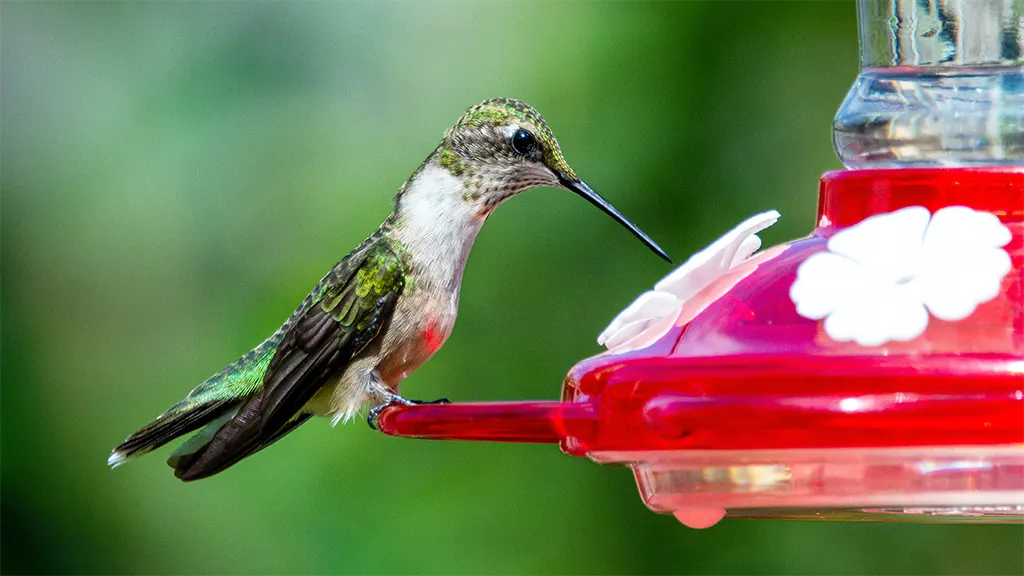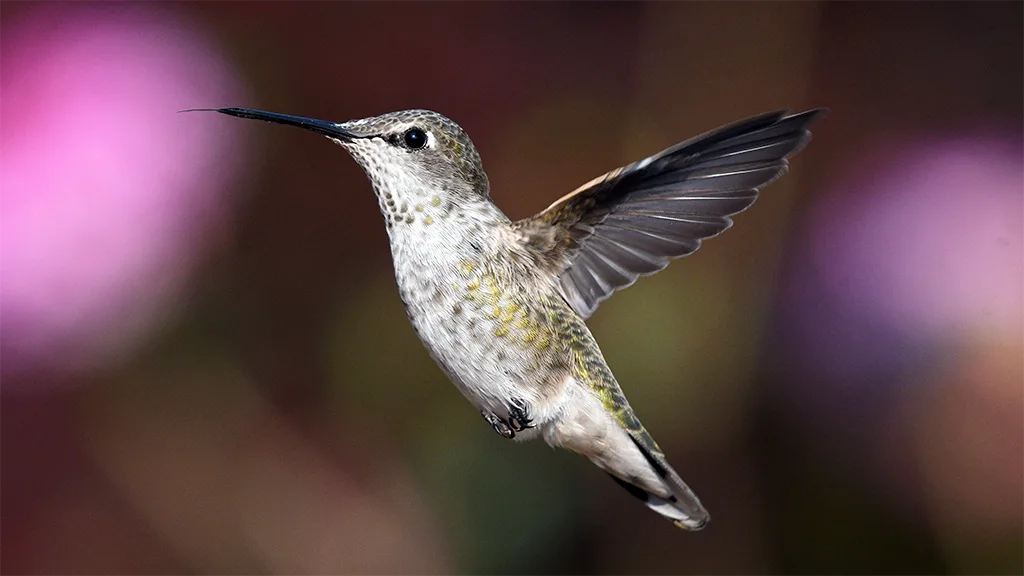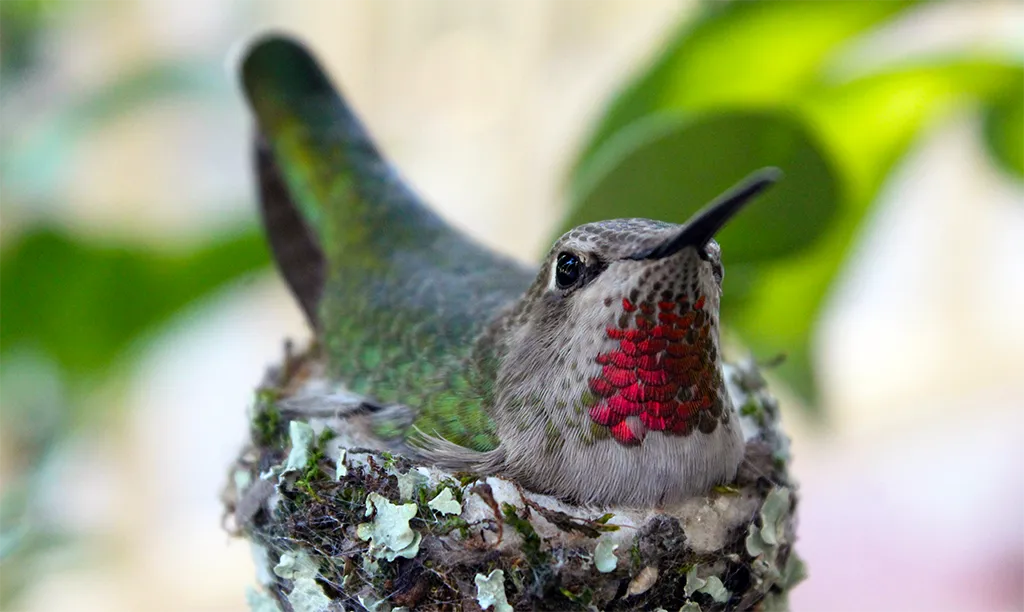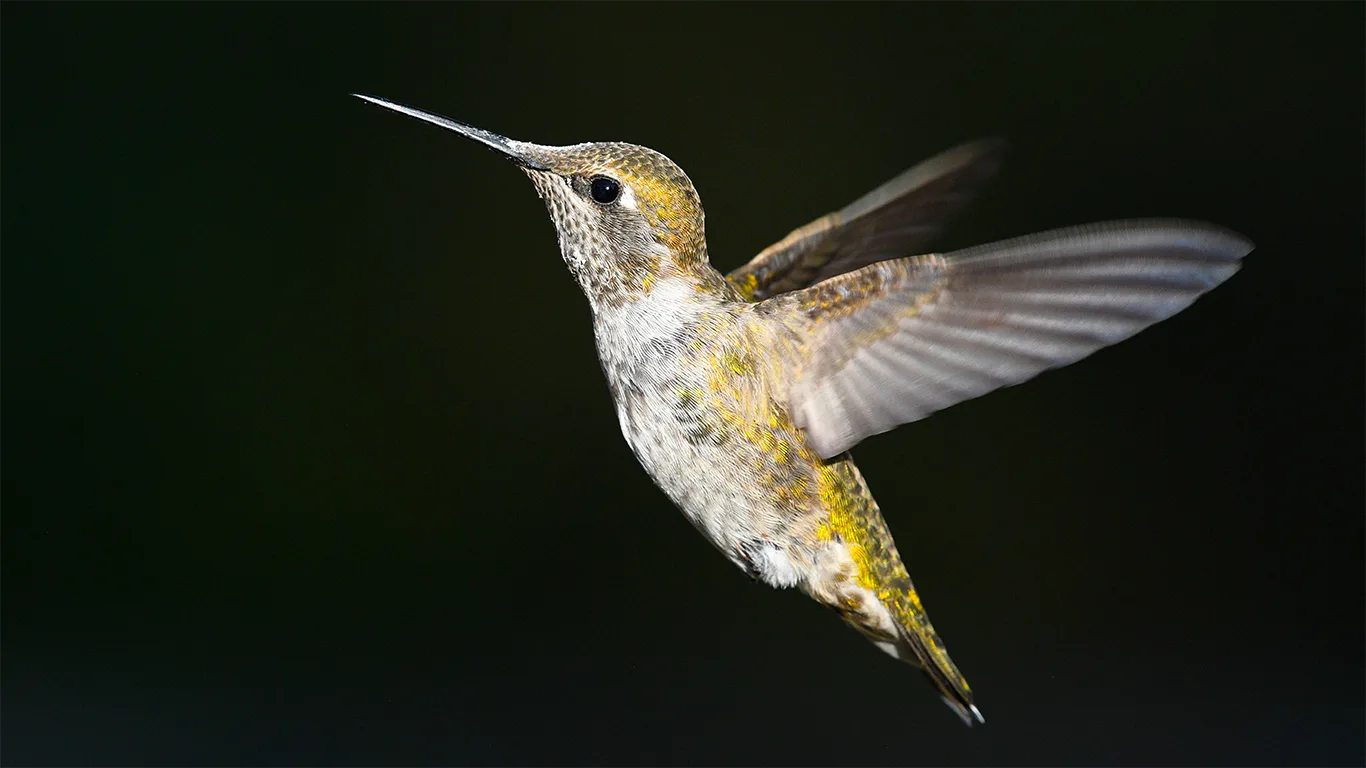Many people often wonder what happens to hummingbirds at night after the sun sets. Do they stay active as they are during the day, or do they simply sleep just like us humans?
Here we will discover exactly what activities hummingbirds like to do at night. Let’s get going.
Do Hummingbirds Fly at Night?
No, hummingbirds do not fly at night in their regular state. They’re diurnal creatures, meaning they’re only active during the daytime and sleeping at night.
However, they will fly at night if they are actively looking for food only when they come across any light source. Also, they may fly at night during their migration process.
Especially the Ruby-throated Hummingbirds are known to fly at night when they are migrating. The reason they have to fly is that it’s not physically possible for them to cover long distances during the daytime.
As a result, during migration these birds may not find any place to land and rest, that’s why they fly even at night.
Related: Can Birds Fly at Nighttime?
Have People Seen Hummingbirds Active at Night?
Some people claim that they have seen hummingbirds active at night, but most of the time it’s just their misconception.
Probably they might see hummingbird moths or migrating hummingbirds. None of these hummingbirds are willingly active during the night, they are just active due to adverse conditions.
The most common case where people think they have seen a hummingbird active at night is just them seeing hummingbird moths. Because the moths look pretty similar to actual hummingbirds.
Other than that, they might see them during their migration, or simply some hummingbirds under artificial lights which confuses the birds a lot.
Do Hummingbirds Come to Feeders at Night?

No, hummingbirds don’t come to feeders at night ever. Their natural time for eating is usually at dawn and dusk. In fact, at night their metabolism level reaches zero which is why they don’t prefer any food at night.
Hummingbirds tend to be hungry early in the morning right after they wake up from sleep. Another crucial time when they might come to the feeders is in the evening when the sun is about to set.
Therefore, they will never prefer eating at night due to lack of vision as well as lack of metabolism in their bodies.
Do Hummingbirds Feed at Night?
As I mentioned earlier, hummingbirds don’t prefer feeding at night. They are mostly active during the day, feeding naturally at dawn and dusk.
In the night, hummingbirds like to conserve energy through torpor. As their metabolism rate slows down to around 1/15th of their actual metabolic rate.
With such a low metabolism rate, they don’t feel like eating at night, as their primary food is to consume nectar in the daytime which isn’t available during the night.
Can Hummingbirds See at Night?

No, hummingbirds aren’t blessed with the vision to see at night. While they have exceptional vision during daytime, their nighttime vision is very much limited. They are almost clueless and confused at night if there is no sufficient light to guide their way.
During daytime, hummingbirds have exceptional vision and are capable of seeing a wide range of colors and identifying them correctly. But at night, under low light conditions, they don’t adapt that well in terms of vision.
The only time they might see something and barely navigate is at the time of migration. Also, not every species can do that, it’s the Ruby-throated hummingbirds that can do it.
What Do Hummingbirds Do in the Dark?
In the dark, hummingbirds prefer resting over anything else. They use this time to conserve energy to go on the next day. They enter a state of torpor at night which is their way of resting or sleeping through the night.
While there are occasional feeding, or activities due to circumstances, their natural activity at night is to simply hibernate and rest.
During torpor, their body temperature can drop by as much as 50 degrees Fahrenheit. Their heart rate slows down to a few beats per minute, and their breathing becomes shallow. This remarkable adaptation allows them to conserve energy while the night air cools.
Where Do Hummingbirds Sleep at Night?
Hummingbirds always seek safety and shelter when it comes to a place to sleep at night. They usually prefer to sleep on sheltered branches which protects that from adversities like rough weather or predators.
If they can’t find such branches, they will then look for crevices or cavities within trees to sleep there.
The branches they choose to sleep at aren’t regular. They have to have some sort of covering such as a branch tucked under leaves or covered with dense foliage.
Some hummingbirds might roost in small nooks or crevices within trees or structures. These offer a sense of security and protection from the elements.
Do Hummingbirds Sleep in the Same Place Every Night?
No, hummingbirds don’t sleep in the same place every night. Because sleeping in the same place every night can open them up for predator attacks. This is why, they avoid sleeping in the same place every day and prefer a different location every night.
Hummers always choose a safe location based on what’s readily available around them. Their choice of sleeping place depends on factors like weather conditions, available cover, and potential predators.
Do Hummingbirds Sleep In Their Nests?

Hummingbirds prefer to sleep perched on branches in dense vegetation rather than in nests. It provides more shelter and protection from predators.
However, sometimes you might see female hummingbirds sleeping in their nests. This only happens during the breeding season. They do this to keep their eggs warm and care for their chicks. Otherwise, female hummingbirds usually sleep on branches rather than in their nests.
Conclusion
In summary, hummingbirds aren’t that active at night. Whether it’s for eating or moving around, they don’t prefer doing anything at night. It’s mainly due to their lack of vision, food preferences, and navigation.
Generally, they love to rest up the night at a safe place and conserve energy for the next day.


